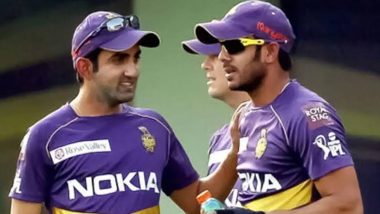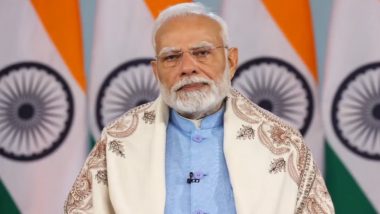Washington, Nov 5 (PTI) Over the last two decades, an international science and technology initiative of the Massachusetts Institute of Technology (MIT) has sent more than 1,000 students, researcher scholars and faculty members to India, a professor of the institute said.
"Working across the breadth of the country, our programme provides students, researchers and faculty with an opportunity to be at the forefront of India's research, technology and innovation activities, while experiencing the country's rich history and culture," MIT Professor of Vision and Computational Neuroscience Pawan Sinha said at an MIT-India event here.
Since 1998, MIT-India has facilitated 1,000+ student internships and research opportunities at India's world-class companies, universities, non-profits and NGOs, Sinha told a Washington DC audience last week.
Organised by the Indian Embassy here, in association with the MIT-Club Washington DC, the event highlighted the activities of MIT-International Science & Technology Initiatives (MISTI)-India Program and discussed on the path forward to achieve greater collaboration with MIT to meet future science and technology goals in India.
Addressing the gathering comprising of over a hundred MIT alumni, India's Ambassador to the US, Harsh Vardhan Shringla, said the Indian government was extensively supporting research parks and technology business incubators which promote innovative ideas and technologies till they become commercial ventures.
Shringla underscored the importance of expanding engagement with such elite institutions with the science and technology enterprise of India and leveraging binational relationship to build a strong technology led start-up ecosystem in India.
In his power point presentation, Prof Pawan Sinha, who leads the MIT-India Program, discussed various programs to engage MIT with institutions in India.
The Global Startup Labs cultivate and empower young tech entrepreneurs in India, Sinha said, adding that it includes a six to eight-week entrepreneurship boot-camp taught by MIT students. The courses focus on mobile and internet technologies, and are designed to awaken participants to the commercial possibilities of these technologies, Sinha said.
MIT India program has been very useful to its students, researchers and faculty, he said. "MIT-India has helped me grow as a student, an engineer, and as a person," said Grace Hu '22, Computer Science and Engineering in his testimonial.
According to Noa Machover, '19 Humanities & Engineering, MIT-India was a meaningful and valuable experience and he now feels confident about his ability to navigate the world.
"Spending the summer in India made me realise how interested I am in cultural exchange and cross-culturalism. I have since changed my major from Materials Science & Engineering to Humanities & Engineering. For the humanities portion, I will be focusing on Global Studies," Machover said.
This programme is a wonderful way to allow students from different cultures and backgrounds to work together and expand their mental boundaries on when, where, and how science can be explored, said Dr Shannon B Olsson, National Center for Biological Sciences, in his testimonial.
"Having an MIT-India intern at the institute also benefits our students who get some exposure of the outside world. The programme not only benefits the intern, it also benefits the students in the lab," said Dr Debasis Das from the Indian Institute of Science.
(This is an unedited and auto-generated story from Syndicated News feed, LatestLY Staff may not have modified or edited the content body)













 Quickly
Quickly




















